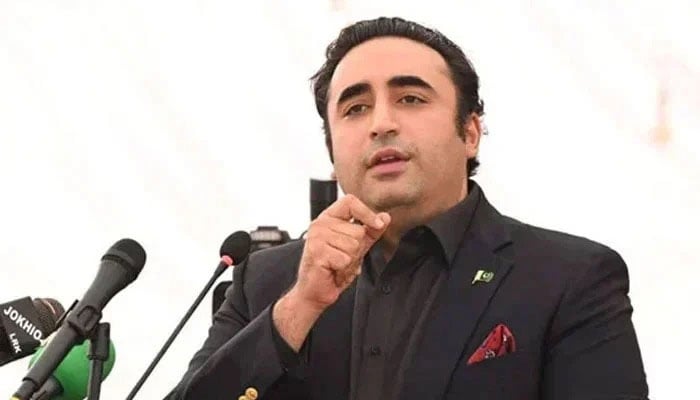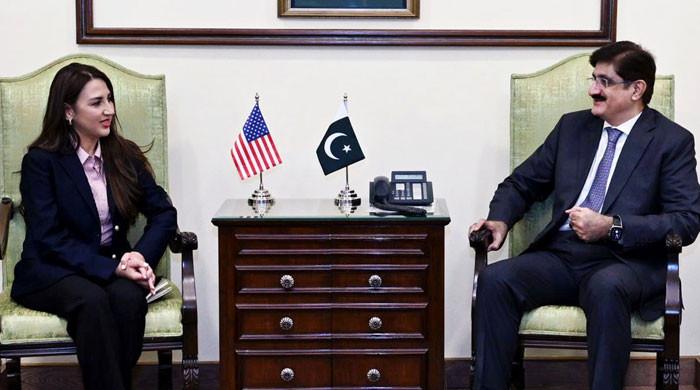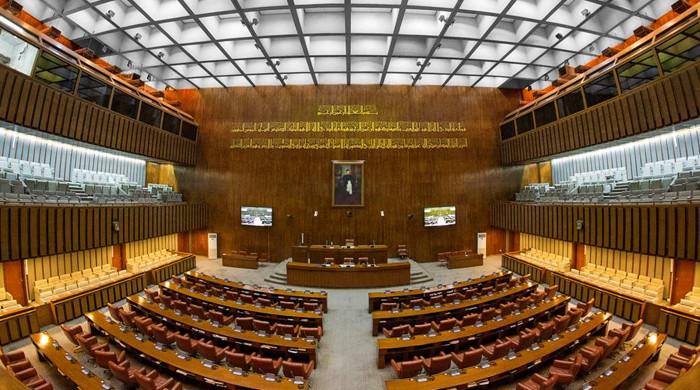Bilawal warns India of 'global isolation' over unilateral actions after Pahalgam attack
PPP chief says New Delhi not interested in combating terrorism but rather exploiting it for political gain
April 25, 2025

- Bilawal says India lacks authority to unilaterally suspend IWT.
- Slams New Delhi for weaponising water amid climate change threat.
- Lauds Centre for responsible decision on contentious canals project.
ISLAMABAD: Following India's drastic announcement of holding Indus Water Treaty in abeyance in the aftermath of Pahalgam attack, Pakistan Peoples Party (PPP) Chairman Bilawal Bhutto-Zardari said that the New Delhi's recent unilateral steps would lead to its isolation both domestically and internationally.
“Even during times of war, such steps were not taken… what India is doing now is unprecedented and shows it is not interested in combatting terrorism but rather exploiting it for political gain," the former foreign minister said while speaking on Geo News’ programme ‘Aaj Shahzeb Khanzada Kay Sath' on Friday.
The warning follows the deadly gun attack in the Indian Illegally Occupied Jammu and Kashmir (IIOJK), where 26 tourists were shot dead at a scenic location in the Pahalgam area. The victims included one Nepali national.
Following the attack, India took unilateral and frivolous measures against Pakistan, suspending a water-sharing treaty, announcing the closure of the main land border crossing with Pakistan, downgrading diplomatic ties, and withdrawing visas.
Pakistan, in response, ordered the expulsion of Indian diplomats and military advisers, cancelling visas for Indian nationals, with the exception of Sikh pilgrims — and closing the main border crossing from its side.
The United Nations (UN) has urged Pakistan and India to show "maximum restraint", saying that any issues between Pakistan and India should be resolved peacefully through meaningful mutual engagement.
Speaking during today's programme, Bilawal noted that India lacks the authority to unilaterally suspend the Indus Waters Treaty, saying that the agreement is internationally recognised and also involves other signatories including the World Bank.
“Weaponising water during a time when the entire planet is threatened by climate change is not only irresponsible but immoral,” Bilawal added.
He further said that if wars are to be fought over water, future generations would be trapped in a cycle of conflict. "No country will endorse actions aimed at undermining an internationally sanctified water-sharing agreement," he added.
The PPP chairman also said that time has proven that India is not interested in peace, but in systematically eroding the internationally recognised status of IIOJK. “When Article 370 was revoked, it wasn’t an act against terrorism — it was a crackdown on peaceful protesters and political leadership,” he said.
Bilawal said that India seeks to blur the lines between legitimate resistance and terrorism, avoiding its international legal obligations in Kashmir by continuously blaming Pakistan. “They think they succeeded once and can keep repeating it — but the world is now seeing through these tactics,” he said.
He added that while the world unites in condemning acts of terror, no one is ready to support India's unilateral move to politicise shared resources or break international agreements.
When asked about the contentious canals project, Bilawal said that the federal government had taken a responsible decision, and any final approval would come through the Council of Common Interests (CCI).
“It has been agreed that no new canal will be built without consensus. In a democracy, unilateral decisions don’t work,” he remarked.
He said certain elements are trying to stoke regional tensions, especially between Sindh and Punjab, for their own benefit. “Such negative forces will be responded to politically,” he affirmed.











